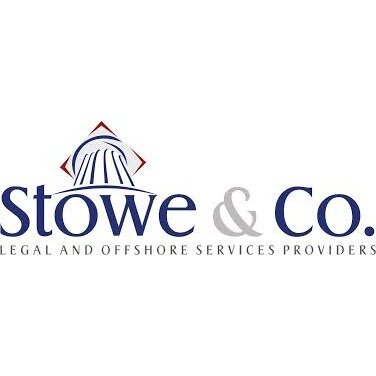Best Renewable & Alternative Energy Lawyers in Roseau
Share your needs with us, get contacted by law firms.
Free. Takes 2 min.
List of the best lawyers in Roseau, Dominica
About Renewable & Alternative Energy Law in Roseau, Dominica
Renewable and alternative energy law in Roseau, Dominica covers the legal frameworks and regulations that govern the generation, distribution, and usage of energy sourced from renewable resources, such as solar, wind, hydro, and geothermal. With Dominica’s ambition to become the world’s first climate-resilient nation, and substantial natural resources including geothermal and hydropower, developing and regulating the renewable energy sector is a national priority. Legal considerations in this emerging field are crucial for individuals, businesses, and governmental agencies involved in the energy transition, ensuring sustainable development in compliance with environmental, commercial, and land management laws.
Why You May Need a Lawyer
There are many situations in which seeking the advice of a lawyer experienced in renewable and alternative energy law in Roseau, Dominica is essential. Common scenarios include:
- Navigating the permitting process for renewable energy projects such as solar panel installations or geothermal power plants - Negotiating energy purchase agreements or contracts for supplying or purchasing renewable energy - Resolving land use and zoning issues, especially for large-scale projects - Ensuring compliance with national and regional energy and environmental laws - Securing government incentives or financing for renewable energy investments - Handling disputes with contractors, suppliers, or regulators - Addressing intellectual property concerns related to energy technology - Understanding tariffs and energy pricing under regulatory frameworks - Environmental impact assessments and public consultations - Assisting with international investments and cross-border projects in the energy sector
Legal guidance can help avoid costly mistakes, ensure regulatory compliance, and facilitate the smooth development and operation of renewable energy projects.
Local Laws Overview
Dominica’s legal approach to renewable and alternative energy is guided by national priorities for sustainable development and climate resilience. Key aspects of the local legal landscape include:
- The Electricity Supply Act governs the generation, distribution, and sale of electricity, including provisions for renewable energy. - The Geothermal Resources Development Act regulates exploration and exploitation of the island’s abundant geothermal resources. - Environmental Protection legislation requires environmental impact assessments for energy projects. - The Dominica Geothermal Development Company and the Dominica Electricity Services Limited (DOMLEC) play significant roles in the sector as public utility providers. - Licensing and permitting are managed through the Independent Regulatory Commission (IRC), which oversees energy sector compliance. - Tax and investment incentives are available under certain legislation for those who invest in renewable energy. - Land use regulations, planning permissions, and community consultations are also critical steps, especially for larger energy projects. - As a member of the Organisation of Eastern Caribbean States (OECS), some regional standards and policies may also apply. - International funding or assistance may involve compliance with both local and donor-related standards.
Navigating this legal environment requires understanding both the letter of the law and the practical processes of working with various authorities.
Frequently Asked Questions
What qualifies as renewable or alternative energy in Dominica?
Renewable or alternative energy typically refers to energy generated from sources that are naturally replenished, such as solar, wind, hydropower, geothermal, and biomass. In Dominica, geothermal and hydropower are among the most prominent.
What permits are needed to start a renewable energy project?
A renewable energy project generally requires several permits, including land use or planning permission, environmental impact assessment approval, and operating licenses from the Independent Regulatory Commission.
Are there incentives available for installing solar panels or other green solutions?
Yes, the government offers various incentives such as tax breaks, duty concessions, and accelerated depreciation for those investing in renewable energy technologies, subject to eligibility and application.
Can individuals generate their own electricity from solar or wind?
Yes, individuals can install and use renewable energy systems for private use, though there are regulations and potential licensing requirements for grid connection or for systems above certain output levels.
Who regulates the electricity sector in Dominica?
The Independent Regulatory Commission (IRC) is the main body overseeing electricity supply and regulatory compliance in Dominica.
How does land ownership affect renewable energy projects?
Land ownership and clear title are necessary for developing energy projects. Lease agreements or outright purchase may be required, and processes such as land surveys and registry checks are important.
What laws protect the environment during energy development?
The Environmental Coordination Unit enforces environmental protection laws requiring environmental impact assessments and approval for significant energy projects.
Are there opportunities for foreign investors in renewable energy?
Yes, Dominica encourages foreign investment in the sector and offers incentives, though investors must comply with national laws and regulations, including possible requirements for local partnerships or approvals.
What is geothermal energy’s role in Dominica?
Geothermal energy is a key focus due to Dominica’s volcanic landscape, with government-led projects aiming for energy independence and export potential. Specific legal frameworks exist for its exploration and production.
What happens if there is a dispute over an energy project?
If disputes arise, these may be resolved through negotiation, mediation, or, if necessary, litigation in Dominica’s courts. Legal representation is important for navigating contract or regulatory disagreements.
Additional Resources
For more information and support, consider contacting or exploring the following agencies and organizations:
- Independent Regulatory Commission (IRC) - Ministry of Energy and Public Utilities - Dominica Geothermal Development Company - Dominica Electricity Services Limited (DOMLEC) - Environmental Coordination Unit - Invest Dominica Authority (for investment incentives and guides) - Organisation of Eastern Caribbean States (OECS) Sustainable Energy Program - Local law firms with renewable energy expertise
Next Steps
If you need legal advice or assistance in renewable or alternative energy matters in Roseau, Dominica, start by defining the nature of your project or concern. Gather any relevant documents such as permits, correspondence, or contracts. Identify your specific legal or regulatory questions. It is advisable to consult with a local lawyer who has experience in the energy sector. You can contact the Dominica Bar Association for recommendations or reach out to individual firms. Prepare for your meeting by listing your objectives and any challenges you have encountered. Clear legal advice will help you understand your rights and obligations, prevent costly delays, and support the successful development of your energy project.
Lawzana helps you find the best lawyers and law firms in Roseau through a curated and pre-screened list of qualified legal professionals. Our platform offers rankings and detailed profiles of attorneys and law firms, allowing you to compare based on practice areas, including Renewable & Alternative Energy, experience, and client feedback.
Each profile includes a description of the firm's areas of practice, client reviews, team members and partners, year of establishment, spoken languages, office locations, contact information, social media presence, and any published articles or resources. Most firms on our platform speak English and are experienced in both local and international legal matters.
Get a quote from top-rated law firms in Roseau, Dominica — quickly, securely, and without unnecessary hassle.
Disclaimer:
The information provided on this page is for general informational purposes only and does not constitute legal advice. While we strive to ensure the accuracy and relevance of the content, legal information may change over time, and interpretations of the law can vary. You should always consult with a qualified legal professional for advice specific to your situation.
We disclaim all liability for actions taken or not taken based on the content of this page. If you believe any information is incorrect or outdated, please contact us, and we will review and update it where appropriate.











